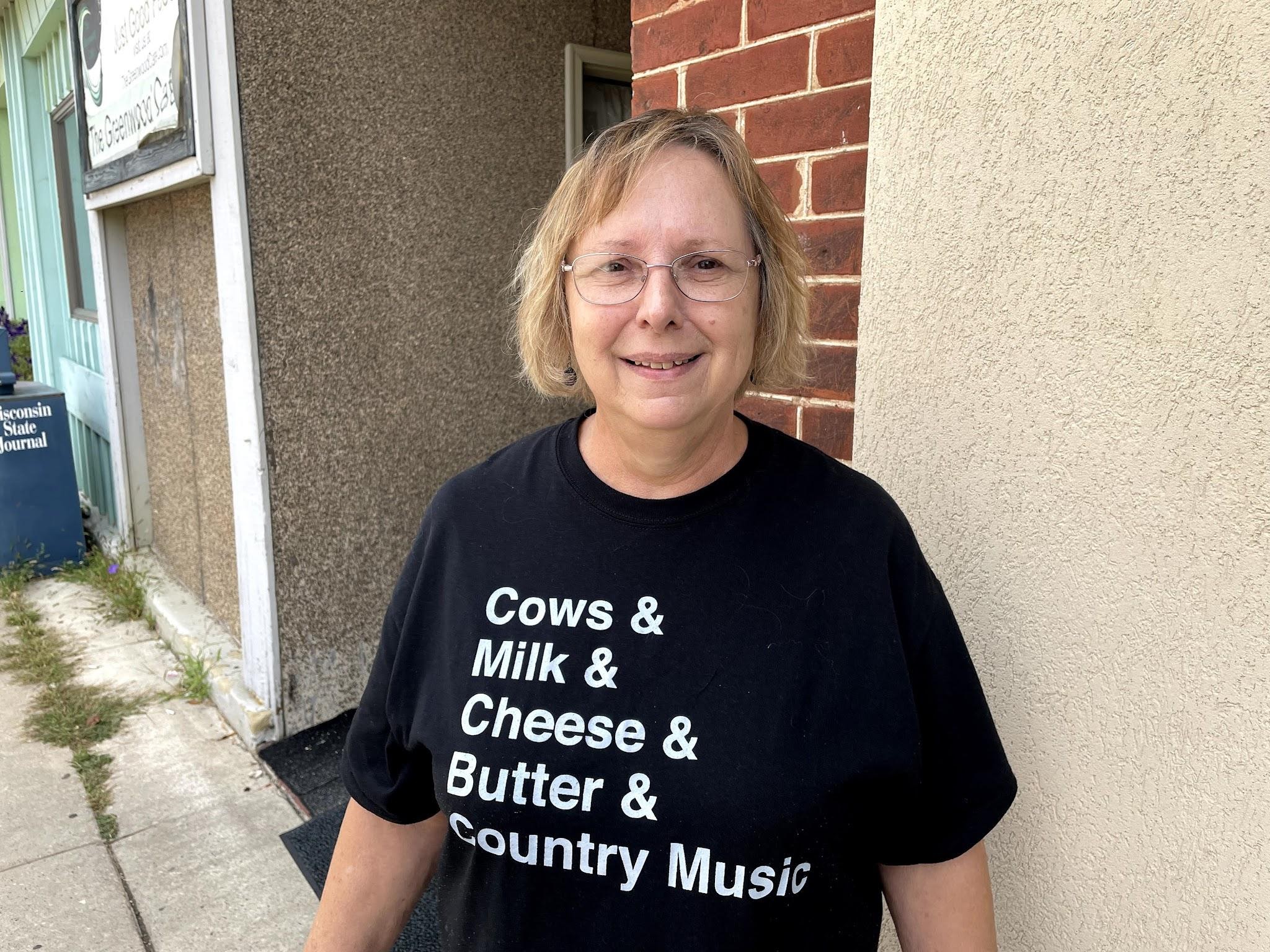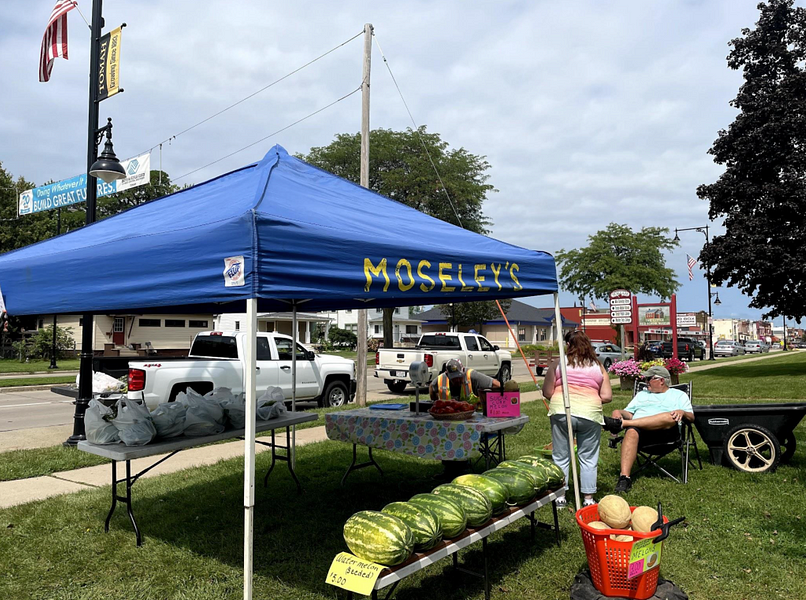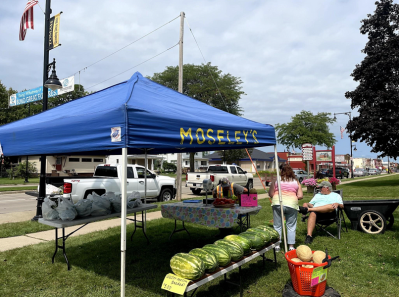During a languid morning on the 1950s-era main street of Tomah, Wisconsin, it is impossible to tell a critical event in a worldwide humanitarian crisis is taking place a mere stone’s throw away. Superior Avenue, which bisects the town of a little more than 9,000 residents, is almost empty, save for the occasional employee popping out of a mom-and-pop storefront to grab a quick smoke.
Tomah sits about 10 miles from Fort McCoy, an Army base quickly filling up with refugees from Afghanistan. Since Sunday, more than 1,000 Afghan refugees have been brought to the rural Wisconsin military base, and more are showing up daily.
Over the past week, Americans have watched in horror as citizens of Afghanistan have risked their lives to travel to the chaotic airport in Kabul. In the early, chaotic hours after the fall of Kabul, some clung to the outside of planes in an attempt to escape before the U.S. military gained control over the airport. Those scenes were replaced by images of Afghans crowding outside the airport gates, with a few cases of people passing children forward to U.S. troops on the wall. And finally, on Thursday, a pair of explosions killed more than 100 people, including 13 U.S. servicemembers.
“They helped us out in a tough situation over there, and for us to turn our backs on them would be the absolute wrong thing to do,” retiree Frank Best told me as he sat in a lawn chair near the Tomah farmer’s market on the western edge of downtown. “We contributed to their problems, so we gotta help them out of theirs.”
Best, who tells me he’s a Republican, said, “you have to show compassion, and this is compassion for people who have been our allies. To leave them in their present situation would be an un-Christian thing to do.”
At the same time I was speaking to Best, Republican U.S. Sen. Ron Johnson was touring Fort McCoy, casting doubts both on whether the refugees were being properly vetted and whether their identities could properly be verified.
"Maybe they're taking biometrics, but you need biometrics taken beforehand that you can compare them to," Johnson told reporters after sharply criticizing President Joe Biden’s handling of the exit of U.S. troops in the region. "It would be nice if we knew everyone even just had an identification card, but I'm hearing they don't."
The White House has said the refugees are being vetted at security hubs in Europe or Asia. When they arrive in America, they will be entered into a resettlement plan to help them find homes.
Fort McCoy is one of three military bases authorized to accept Afghan refugees. The others are Fort Bliss, Texas, and Fort Lee, Virginia. The Afghan immigrants are eligible for Special Immigrant Visas, along with their families and other individuals at risk. According to Fort McCoy public affairs director Cheryl Phillips, the U.S.State Department has barred members of the media from talking to the Afghan refugees “for their privacy, security, and safety.”
Earlier this week, GOP Rep. Tom Tiffany, whose congressional district lies just north of Fort McCoy, took a more strident stance, blistering Biden for bringing the refugees to Wisconsin in the first place.
"I am deeply disturbed by reports that as many as 5,000 Afghans per day are headed to the United States—many without valid visas or even basic identity documents,” Tiffany said in a statement on August 18. “Biden administration officials have said they plan to transport many of these individuals to Fort McCoy in Wisconsin—but have declined to elaborate on how many will come, what screening will be carried out prior to arrival, or what will happen after they land here. The Biden administration has already allowed one catastrophe to unfold overseas, and the American people cannot afford for a similar catastrophe to unfold here.”
While Tomah is represented in Congress by Democrat Ron Kind, the city is what national observers would consider “MAGA country:” Trump won the city in 2020 by a 56 percent to 41 percent margin. Yet the residents of Tomah largely don’t share the concerns expressed by Johnson and Tiffany, even though many of the refugees are likely to be placed there.

“It’s a good humanitarian effort for our government,” said Beverly Bell, a native of nearby Sparta. Bell talked to me as she smoked a cigarette outside of a Tomah diner while her friends ate inside.
She told me her son was currently working at Fort McCoy and that he’d told her the situation was “chaotic,” as new planes full of refugees were showing up every 45 minutes.
She also blamed Biden for the crisis. “He’s got everything in a mess in this country right now. I mean, it’s not all his fault either, but still, he needs to get with it,” she said.
This isn’t Tomah’s first go-round with refugees. In May 1980, Fort McCoy accepted more than 14,000 Cubans who washed up on America’s shores as part of Fidel Castro’s Mariel Boatlift—many of whom were set free from Cuba’s prisons. As Castro put it, “I have flushed the toilets of Cuba in the United States.”
Art Tralmer, a Tomah-area farmer, lived near the train tracks where the Cuban refugees were brought in to Fort McCoy. He told me there were “some issue” of home break-ins at the time, but it eventually sorted itself out.
“I had a farm and I was always kind of careful going into the barn at night, because that’s a place they would stay overnight, in a hay mound to stay out of the rain,” he said. “We never really had any incidents, myself. It lasted a while, and then it was gone.”
Tralmer said he thinks the Afghans are more “family-oriented” people, and said he would be “absolutely comfortable” if they were to settle in Tomah.
When I asked him if he thought they were being adequately vetted to make sure the bad guys were weeded out, he laughed.
“There’s some bad folks outside the fence, too,” he said.
Not everyone in Tomah was as welcoming, however.
“I’ve been in the service and I’ve been in Afghanistan, and I don’t want ‘em here,” said a man who asked only to be identified as Todd. He told me he had lived in Tomah his whole life and wasn’t confident they were being sufficiently vetted.
I asked him what problems he foresaw if the refugees were allowed to settle in Tomah. “Same shit,” he said.
Others were more optimistic. A local bank worker named Annie Chang, who immigrated to America from Taiwan two years ago, told me the refugee crisis was a test of America’s “heart.”
She said too many local people believe immigrants come to this country for government benefits. “I came from another country and I didn’t come here for welfare,” said Chang, whose son just enlisted in the U.S. Army.
On people who don’t accept immigrants, Chang said, “I feel bad for them. They say they are Christian, but they don’t have [an] open mind.”
Gwen Nelson, who worked in hospitals for 20 years and now owns the Gondola Gardens restaurant in Tomah, said she was pleased that the Afghans were here and that they’re utilizing Fort McCoy.
“I just think that they should be here,” said Nelson. “They helped us, we need to help them.”
“Culturally, I think it would be a good thing for kids to see a different culture, learn about a different culture,” she said. She told me she was not concerned about the vetting process, hoping only that the refugees are being tested for COVID. (They are.)
Nelson said her father worked at Fort McCoy during the Cuban refugee importation, and while “there were issues, we got through it, and I think we’re a better community, a stronger community, for it.”
“We are a nation of refugees. That’s where we got our start, and they’re part of that.”






Please note that we at The Dispatch hold ourselves, our work, and our commenters to a higher standard than other places on the internet. We welcome comments that foster genuine debate or discussion—including comments critical of us or our work—but responses that include ad hominem attacks on fellow Dispatch members or are intended to stoke fear and anger may be moderated.
With your membership, you only have the ability to comment on The Morning Dispatch articles. Consider upgrading to join the conversation everywhere.